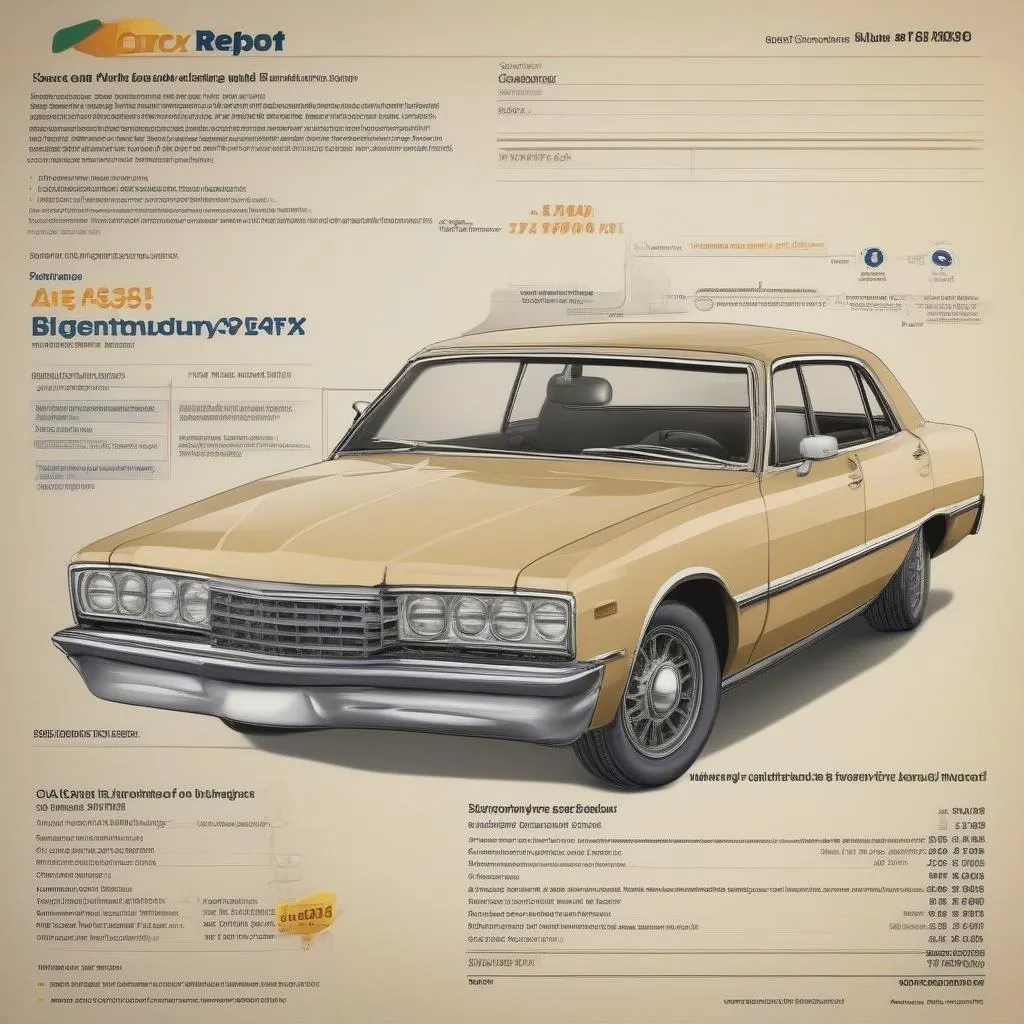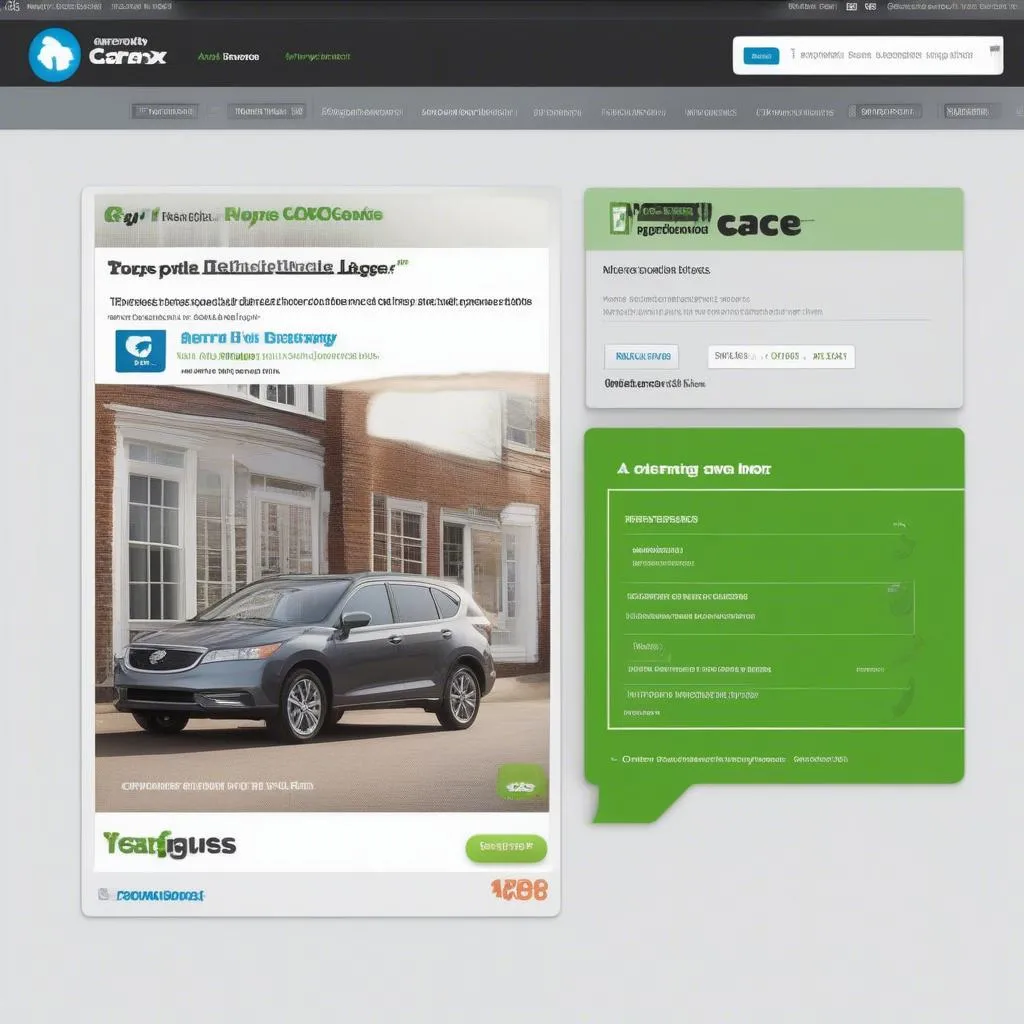Let’s be honest, buying a used car can feel like a gamble. You never quite know what you’re getting until you’ve driven it for a while, and sometimes, even then, surprises can pop up. But what if there was a way to peek behind the curtain and get a glimpse of a car’s history? Enter Carfax.com, a platform that provides detailed vehicle history reports.
Understanding Carfax.com Used Cars
Carfax is a trusted source for used car information. They compile data from various sources, including state and federal agencies, insurance companies, and auto repair shops, to create detailed reports on every vehicle’s past.
From a Mechanic’s Perspective:
Carfax reports can be a mechanic’s best friend. Imagine you’re examining a used car with a potential buyer. You’re checking under the hood, inspecting the tires, and running diagnostics. But what about the things you can’t see? A Carfax report can shed light on a car’s past accidents, repairs, and even odometer readings. This helps you to advise your customer on the car’s true condition and make informed decisions.
The Technical Angle:
Carfax uses a variety of data sources to create their reports, including:
- Title Records: Carfax pulls information from DMV records, which tracks ownership, title changes, and any outstanding liens.
- Insurance Claims: Carfax accesses insurance claims data, which can highlight past accidents, repairs, and even if the vehicle was totaled.
- Service Records: Some repair shops and dealerships report service data to Carfax, offering valuable insights into maintenance history and potential issues.
- Odometer Readings: Carfax can help verify odometer readings, ensuring that a car hasn’t been rolled back or tampered with.
The Economic Perspective:
For consumers, Carfax reports can be invaluable. They can help you:
- Avoid buying a lemon: A detailed Carfax report can reveal hidden problems that could lead to costly repairs in the future. This can save you significant money in the long run.
- Negotiate a better price: A Carfax report can help you understand the true value of a vehicle, empowering you to negotiate a fair price with the seller.
- Make informed decisions: Armed with information from Carfax, you can confidently decide whether a used car is worth the investment.
How to Use Carfax.com for Used Cars
Using Carfax is relatively simple:
- Visit the Carfax website: Head over to www.carfax.com.
- Enter the vehicle’s VIN (Vehicle Identification Number): You can usually find the VIN on the driver’s side dashboard, the door jamb, or the car’s registration papers.
- Purchase a report: Carfax offers a one-time report or a subscription for multiple reports.
- Review the report: The Carfax report will provide a detailed breakdown of the vehicle’s history, including any accidents, repairs, service records, and odometer readings.
Frequently Asked Questions
Does a clean Carfax report guarantee a perfect car?
While a clean Carfax report is a positive sign, it doesn’t mean that a car is completely problem-free. Cars can have issues that aren’t always reported to Carfax, such as minor repairs or wear and tear. It’s always a good idea to have a mechanic inspect the vehicle before making a purchase.
How reliable are Carfax reports?
Carfax is a reputable source for used car information. They have a rigorous data collection process and work with various state and federal agencies. However, it’s important to remember that Carfax reports are only as good as the data they receive. Not all repair shops or dealerships report to Carfax, and there may be instances of unreported accidents or repairs.
What should I look for in a Carfax report?
When reviewing a Carfax report, pay attention to:
- Number of Owners: A car with a high number of previous owners could indicate potential issues or that it wasn’t well-maintained.
- Accidents: If the car has been in an accident, check the severity of the damage and if it was properly repaired.
- Service Records: Review the service records to ensure that the car has been maintained regularly.
- Odometer Readings: Verify that the odometer readings are consistent with the vehicle’s age and history.
Can I get a Carfax report for free?
While Carfax offers free reports, these are usually limited versions. To get a comprehensive report, you’ll likely need to purchase it.
What are some alternatives to Carfax?
While Carfax is the most well-known, other companies offer similar services:
- AutoCheck: This company provides vehicle history reports similar to Carfax.
- HistoryCheck: This platform focuses on offering comprehensive reports on vehicles from the UK and Europe.
The Bottom Line
Carfax reports can be a valuable tool for anyone looking to buy a used car. They offer valuable insights into a vehicle’s history and can help you avoid potential pitfalls. However, it’s important to remember that Carfax reports are not foolproof and should be used in conjunction with a mechanic’s inspection and your own due diligence.
Looking for expert help in understanding the Carfax reports, or need to decipher those diagnostic codes? Our team of expert auto mechanics at DiagXCar is here to help! Contact us via WhatsApp: +84767531508 for 24/7 assistance.
 Sample Carfax Report
Sample Carfax Report
 Used Car Inspection
Used Car Inspection
 Carfax Logo
Carfax Logo
We encourage you to share your experiences with Carfax reports in the comments below. What have you learned from using these reports? What tips do you have for others looking to buy a used car?


